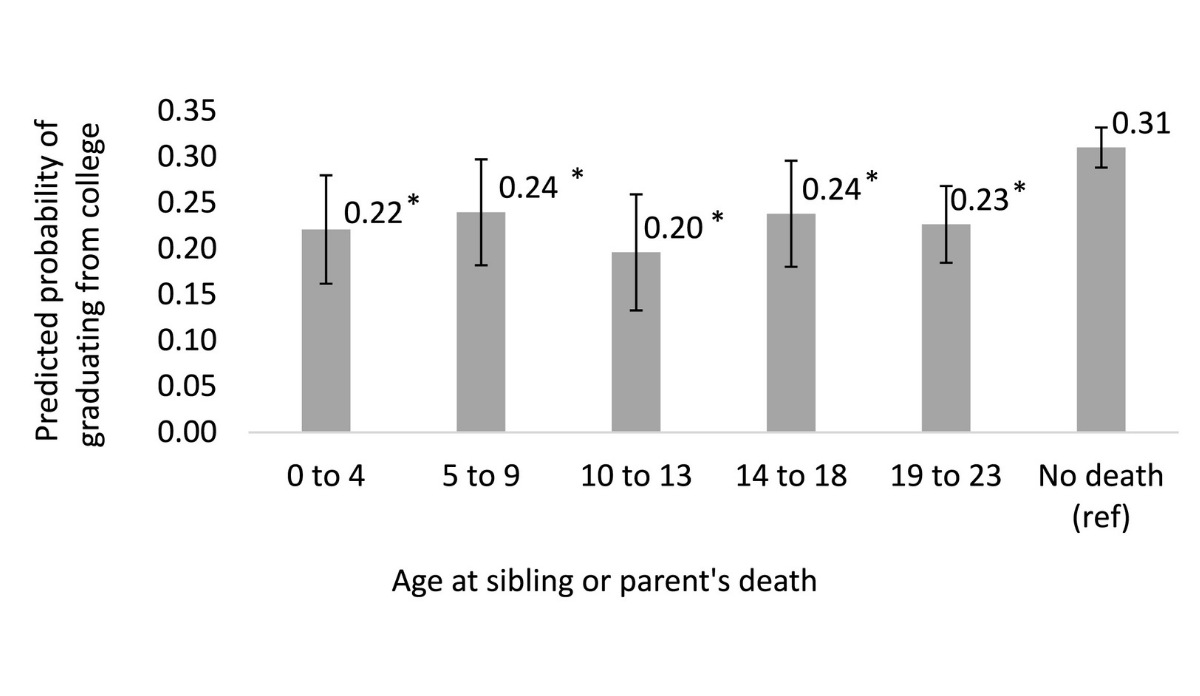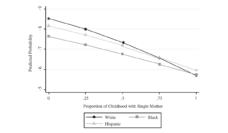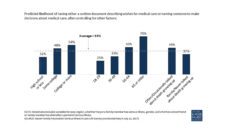The loss of a parent or sibling casts a long shadow over a child’s life. When the foundations of everyday life are disrupted, it profoundly shapes a child’s future and their interactions with the world.
Naomi Thyden and colleagues conducted a study exploring how death in the family influences a child’s education. Using data from the National Longitudinal Study of Adolescent to Adult Health, they investigated whether having a parent or sibling die influenced the likelihood of child eventually attending college and earning their bachelor’s degree.
Children who experienced the death of a sibling or parent before the age of 23 had significantly lower chances of earning a college degree compared to those who did not experience a family death. Only 20% of children who faced a family member’s death graduated with at least a bachelor’s degree, compared to 32% of those who were untouched by family deaths.
As shown in the figure, losing a family member between the ages of 10 and 13 dealt the most significant blow to educational success, with tweens being the least likely to get a college degree after a family death (20%). When weighing the impact of both ‘type of family death’ (either a parent or a sibling) and the age at family death, however, the most harmful combination was a sibling death occurring when the participant was 19-22, the typical years one would be enrolled in college.
The researchers also uncovered notable differences in the probability of family deaths among different racial groups. On average, 14% of the participants experienced a family death, but this figure rose to 24% for Black participants and 30% for Native Americans. Nationally, Black and Native Americans are more likely to die early compared to other Americans. This difference can be attributed to a combination of factors, including higher rates of chronic health conditions, limited access to quality healthcare, and socioeconomic disparities.
Education plays a crucial role in bolstering health and mitigating racial health disparities. Higher education, including obtaining a college degree, is associated with better health and longer life expectancy. The researchers propose that school policies provide support for grieving students dealing with family deaths. This support may include temporary suspensions of schoolwork, adjustments to assignments, or even offering financial refunds if students struggle to balance their academic responsibilities after a death in the family.
Databyte via Naomi Harada Thyden, Jaime Slaughter-Acey, Rachel Widome, et al. Family deaths in the early life course and their association with later educational attainment in a longitudinal cohort study. Social Sciences & Medicine, 2023.














